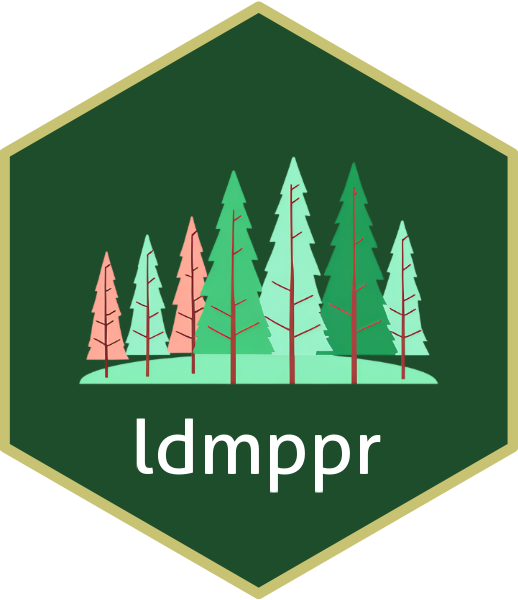Description
Estimate and Simulate from Location Dependent Marked Point Processes.
Description
A suite of tools for estimating, assessing model fit, simulating from, and visualizing location dependent marked point processes characterized by regularity in the pattern. You provide a reference marked point process, a set of raster images containing location specific covariates, and select the estimation algorithm and type of mark model. 'ldmppr' estimates the process and mark models and allows you to check the appropriateness of the model using a variety of diagnostic tools. Once a satisfactory model fit is obtained, you can simulate from the model and visualize the results. Documentation for the package 'ldmppr' is available in the form of a vignette.
README.md
ldmppr 
ldmppr is an R package for working with location dependent marked point processes. The package includes a suite of tools for model estimation, model fit assessment, visualization, and simulation for marked point processes with dependence between the marks and locations and regularity in the pattern.
Workflow Overview
- Estimate the parameters of a self-correcting point process given a reference dataset.
- Train a mark model using simulated or real-world data.
- Check the fit of the model using various non-parametric summaries for point processes and global envelope tests.
- Simulate and visualize datasets from the fitted model.
For additional details on implementing the package workflow, run vignette("ldmppr_howto") in R after installing the package.
Installation
You can install the development version of ldmppr from GitHub with:
# install.packages("devtools")
devtools::install_github("lanedrew/ldmppr", build_vignettes = TRUE)
You can install the stable version of ldmppr from CRAN:
install.packages("ldmppr")
For details on how to install the terra package that ldmppr depends on, please visit the terra installation page.